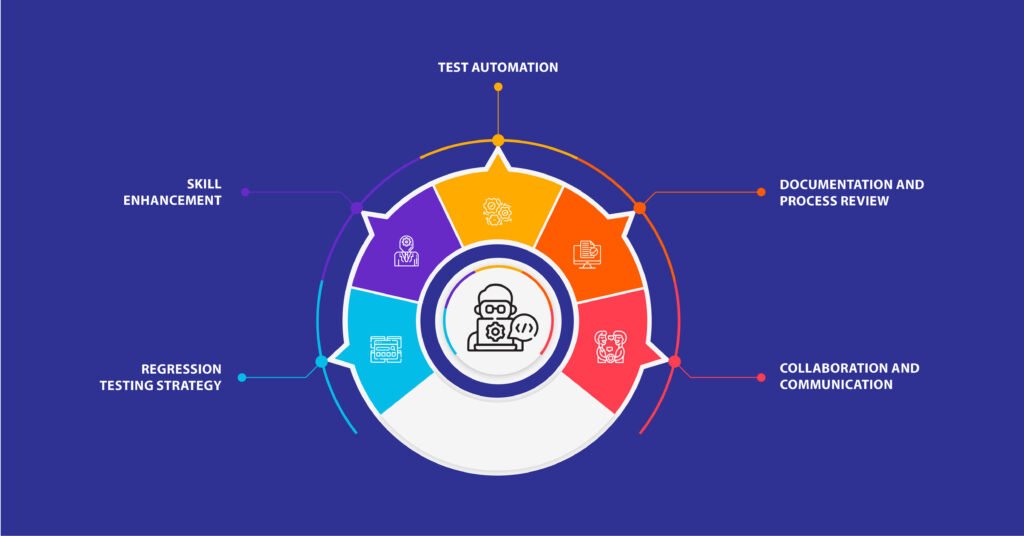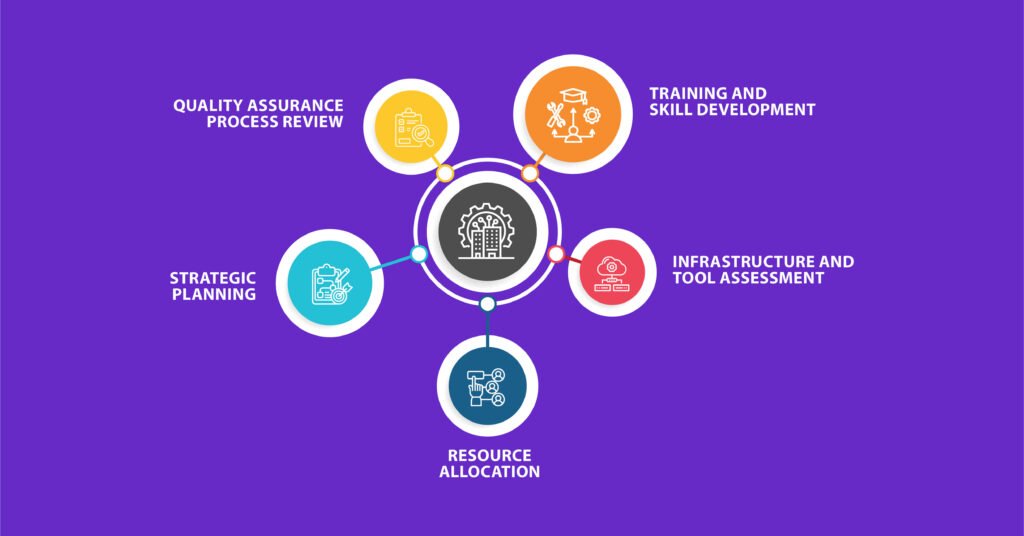In software development, downtime can often feel like a pause in the relentless march forward. However, it is also valuable for reflection, strategizing, and improvement. Software test engineers and organisations can use this time to reinvigorate their processes and capabilities to be better prepared for the challenges that await them. This article explores what software test engineers and organisations should focus on during downtime to ensure they are ready for the next battle.
For Software Test Engineers

1. Skill Enhancement:
Downtime presents an ideal opportunity for software test engineers to enhance their skills. Stay current with the latest testing methodologies, tools, and industry trends. Consider enrolling in online courses, attending workshops, or obtaining certifications to stay at the forefront of your field.
2. Test Automation:
Test automation is a game-changer in modern software testing. Use downtime to develop and refine automation scripts, improve testing frameworks, and evaluate new tools. Investing in test automation can significantly increase efficiency and reduce testing cycles.
3. Documentation and Process Review:
Review and update testing documentation, including test plans, cases, and reports. Ensure that processes are well-documented and easily accessible. Clear, organised documentation is essential for effective testing and onboarding of new team members.
4. Collaboration and Communication:
Effective collaboration between software test engineers and other teams, especially development, is critical. Use this time to strengthen communication channels, address past issues, and foster a collaborative mindset. A harmonious relationship between teams leads to better software quality.
5. Regression Testing Strategy:
Develop a robust regression testing strategy to ensure new features or bug fixes do not introduce unintended side effects. Regularly update and optimise the regression test suite to maintain its efficiency.
For Organizations

1. Strategic Planning:
Organisations should engage in strategic planning during downtime. Set goals and objectives for the upcoming period and align teams with the company’s mission. A well-defined strategy guides decision-making and resource allocation.
2. Quality Assurance Process Review:
Conduct a thorough review of your quality assurance (QA) processes. Identify bottlenecks, inefficiencies, and areas for improvement. Invest in tools and technologies that can enhance your QA process.
3. Training and Skill Development:
You can invest in training and skill development for your software test engineers and other team members. A knowledgeable and skilled workforce is a valuable asset that can lead to better product quality.
4. Infrastructure and Tool Assessment:
Could you assess your testing infrastructure and tools? Are they up to date? Do they meet your evolving needs? Consider upgrading or adopting new technologies to improve testing efficiency.
5. Resource Allocation:
Downtime allows organisations to reassess resource allocation. Please ensure you have the correct team sizes, skill sets, and budgets to support upcoming projects effectively.
Downtime in software development can be a strategic opportunity if used wisely. Software test engineers can enhance their skills, embrace test automation, refine documentation, focus on collaboration, and develop robust regression testing strategies. This period is ideal for organisations for strategic planning, quality assurance process review, training, infrastructure assessment, and resource allocation. By making the most of downtime, software test engineers and organisations can emerge more muscular, efficient, and better prepared for the challenges and opportunities in the highly dynamic world of software development.
